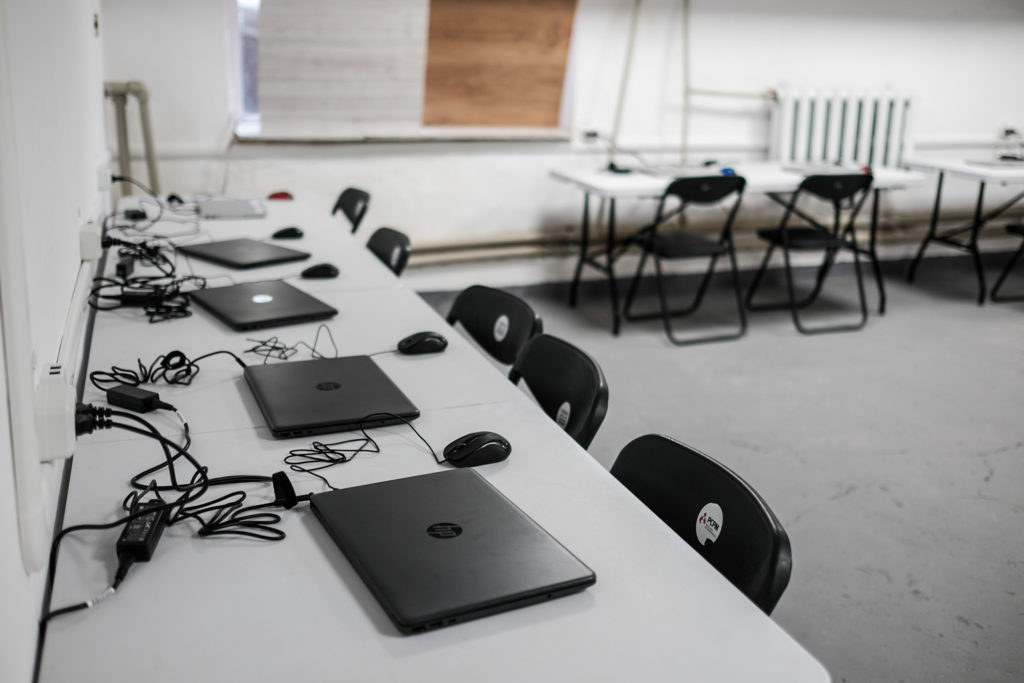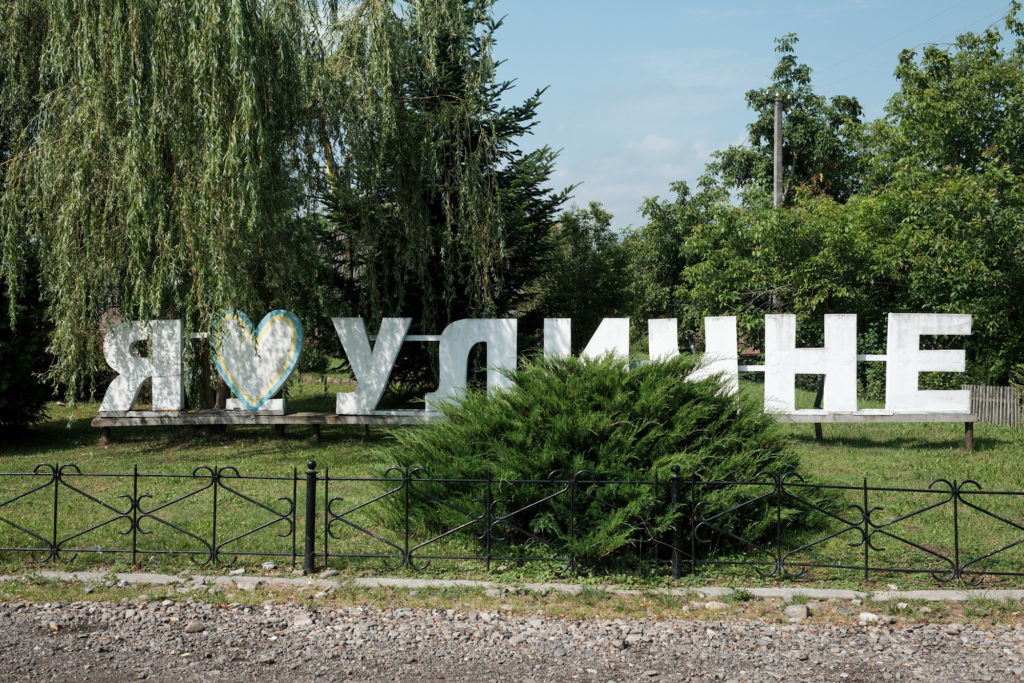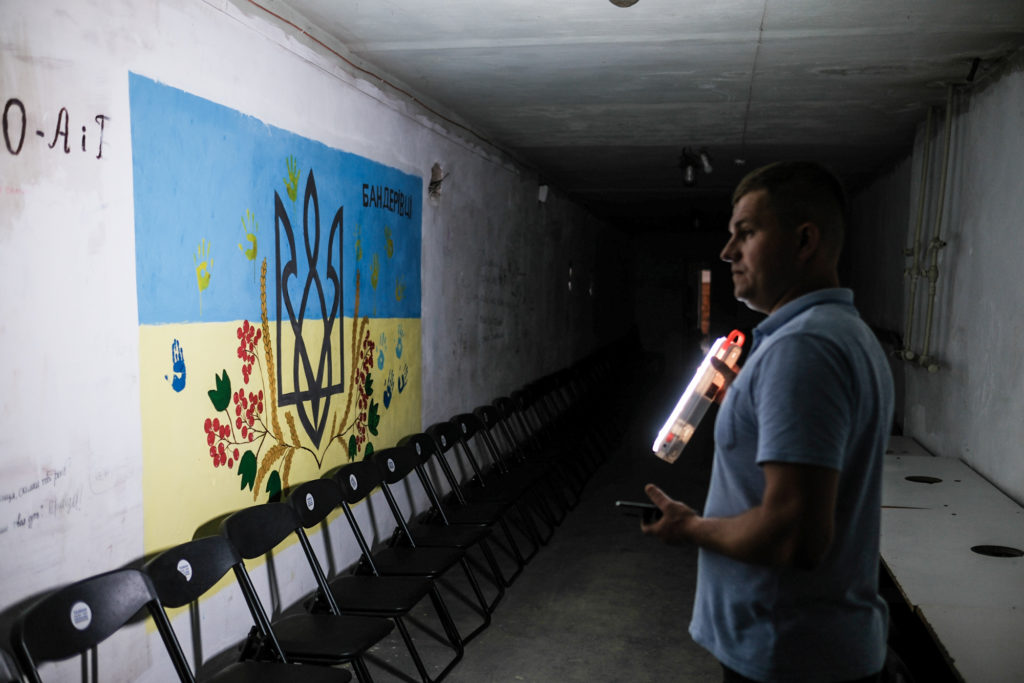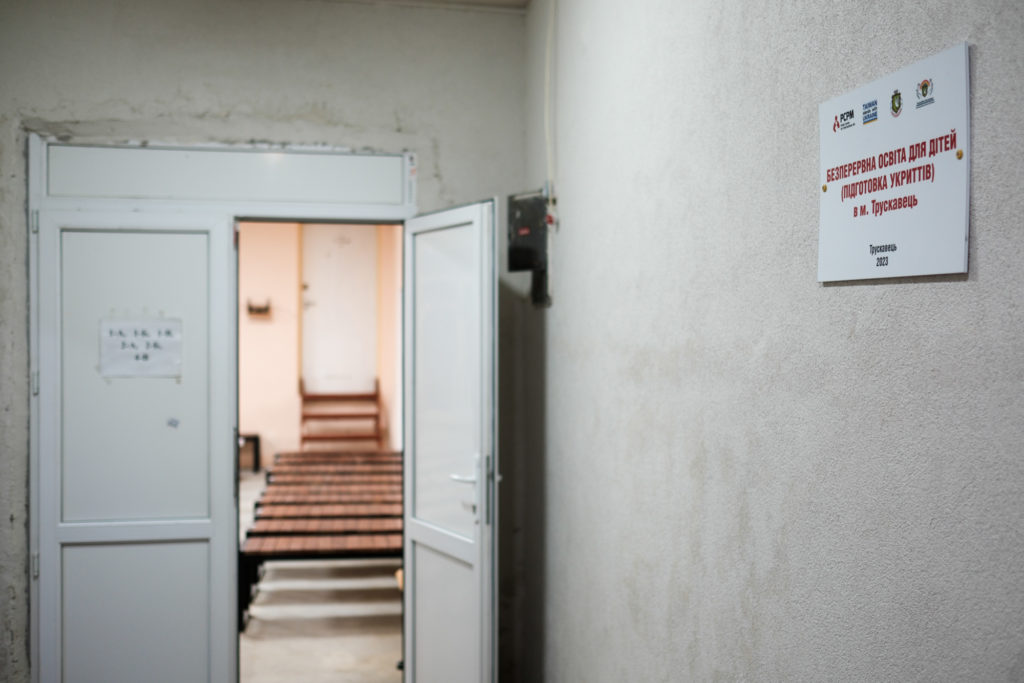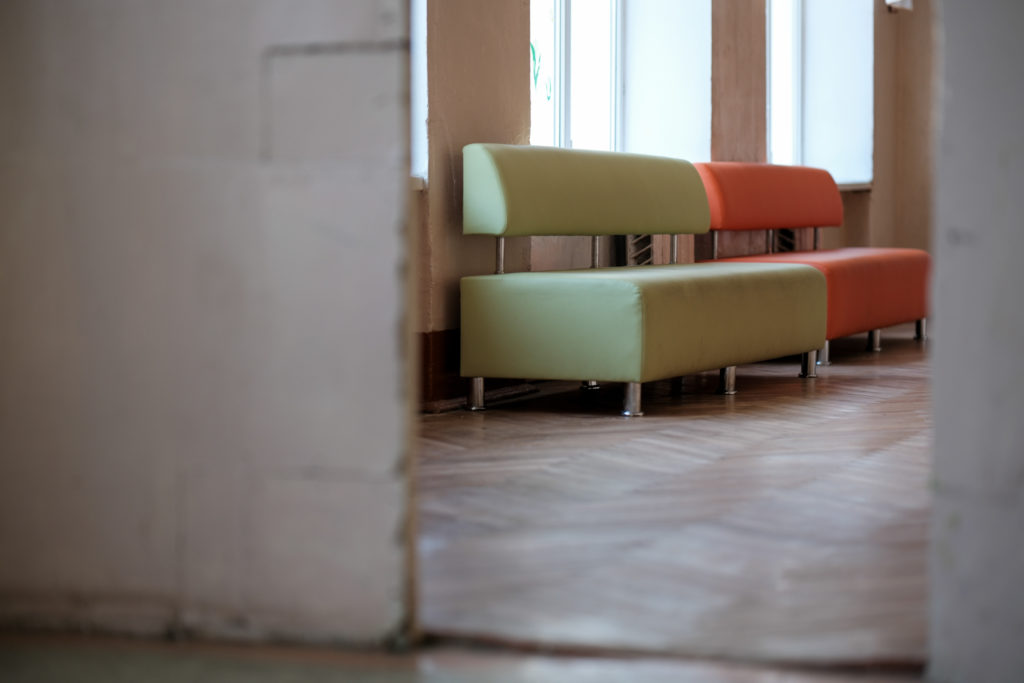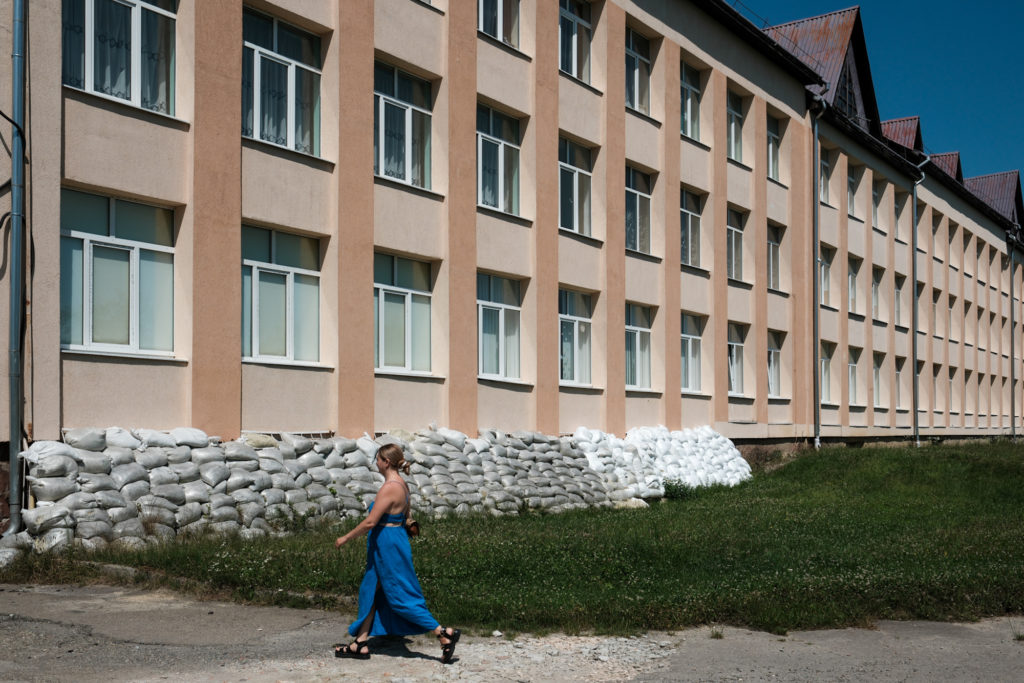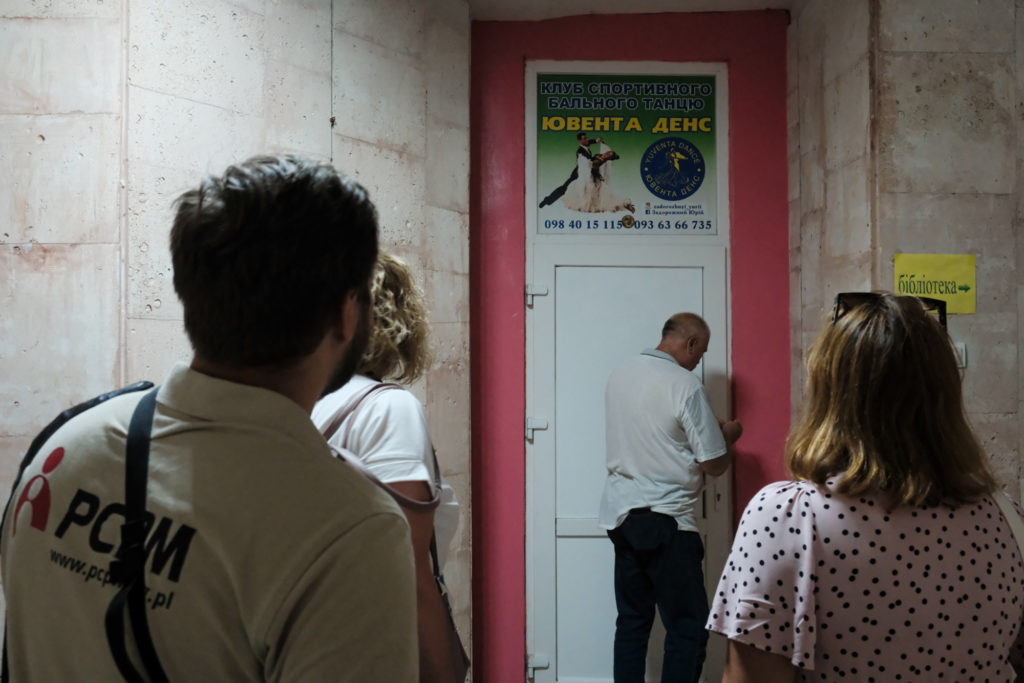Online for Five Years
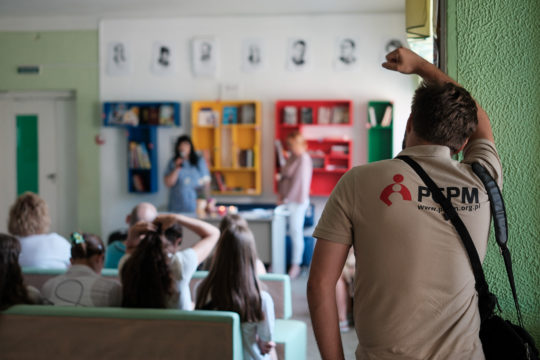
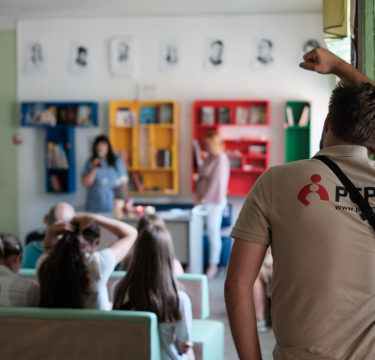
Truskavets, a town of 30,000 in the Lviv region, is a renowned mountain resort known for its distinctive wooden architecture. I arrived here with a worker from the Polish Center for International Aid (PCPM), where the Foundation carries out educational, health, and humanitarian projects funded by the Taiwanese government. On the same day, Russia bombed the Okhmatdyt Children’s Hospital in Kyiv. The world watched the rescue operation with bated breath. Anxiety about children’s safety in the upcoming school year resurfaces immediately.
At first look, there are no visible signs of war in Truskavets. Shops are open, public transportation and healthcare are functioning. Local bazaars are full of fruits and vegetables, and the smell of freshly baked bread wafts from a small bakery. Life goes on as usual.
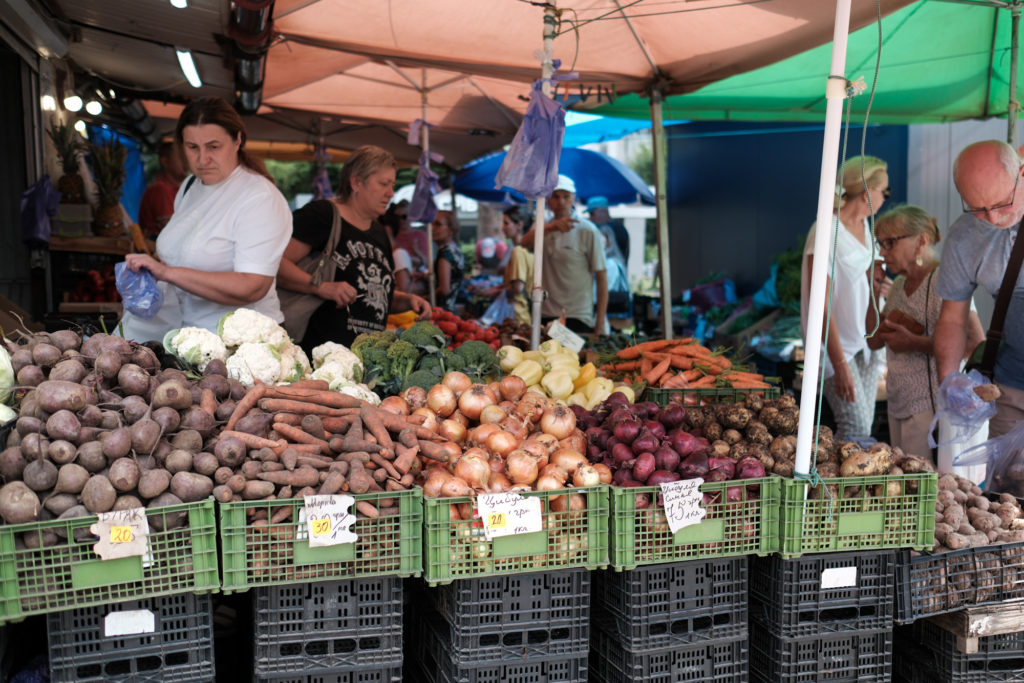
Sometimes, air strike sirens blare. However, they are not taken very seriously here. The city was fortunate enough to avoid bombings. The streets are filled with elderly people, women, and children. There are very few young men; at most, you’ll see maimed soldiers who have undergone amputations and are unable to return to the front lines. Portraits of Truskavets’ fallen soldiers take pride of place in front of public buildings.
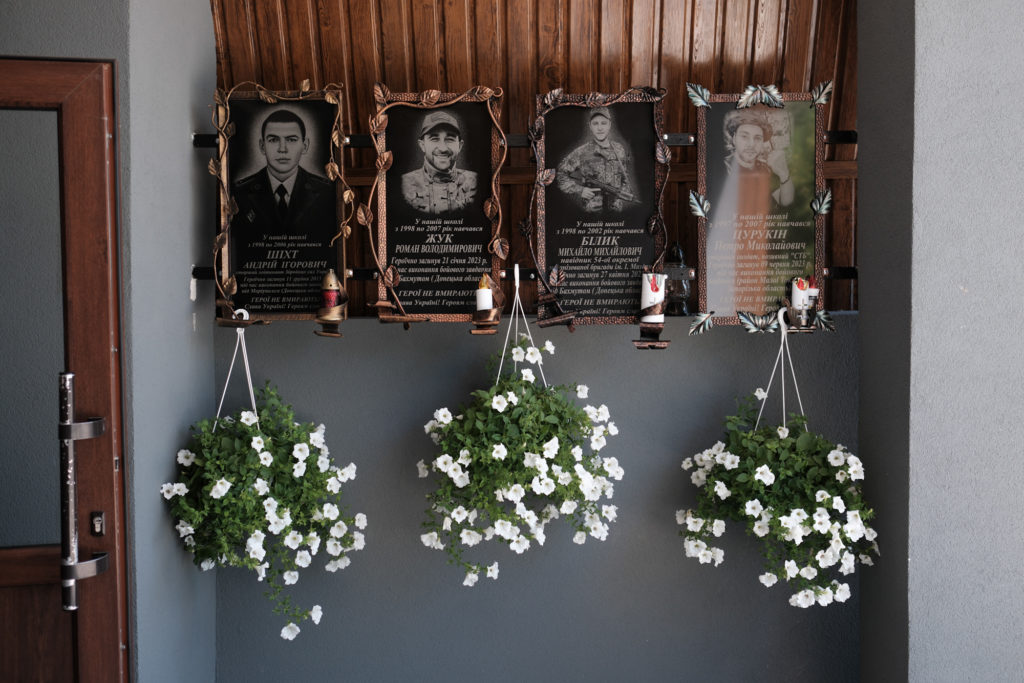
Sandbags protect the entrances to shelters and basements. A muffled hum of generators fills the air, as Truskavets has electricity only a few hours a day. It’s a war that is both present and absent. A strange state of uncertain temporariness. This has been going on for three years now.
In Truskavets, we visited an eleven-class school, equivalent to a Polish primary and middle school. One of the war’s most profound effects is on education. For the fifth consecutive year, Ukrainian schools have to deal with the disruption caused first by the COVID-19 pandemic and now by the war. Decisions on whether schools operate online or in person fall to local authorities and military officials, with safety a paramount concern. Some schools in Ukraine, especially in the Lviv region, are holding in-person classes. However, schools have moved entirely online in areas closer to the frontline. To offer in-person education, a school must have a shelter or basement converted into a classroom according to the government’s standards. Adapting basements for educational purposes is a significant financial challenge. Shelters require furniture, ventilation systems, food and water supplies, heating, and educational equipment like boards, projectors, and computers.
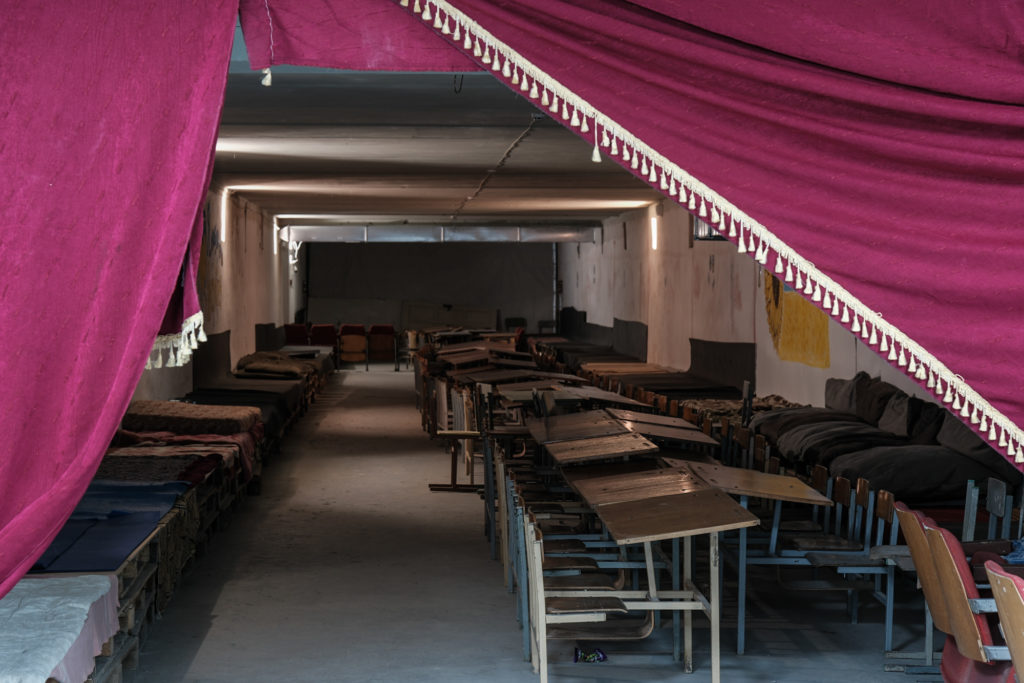
The Polish Center for International Aid (PCPM) Foundation has stepped in to support three schools in Truskavets. Their contributions include folding furniture, televisions, projectors, and crucial equipment like a high-frequency converter to maintain power during outages and a diesel-powered heater for the shelter.
The shelter, designed for 750 children, serves not only the local student body but also displaced children from war-torn Druzhkivka. With a focus on the student’s well-being, teachers prioritize their psycho-emotional state through storytelling, poetry, drawing, and singing.
– Teachers read books to students, teach them poems, draw, and sing together. First and most important, it is necessary to provide all students with a sense of security. Fortunately, there has never been an attack on a school or kindergarten in Truskavets itself, but in nearby Drohobych, the shrapnel hit an educational institution. I would like to thank the PCPM Foundation for being sensitive to our needs. The help the Foundation has provided us with makes it possible to teach in person during air alarms, both by improving the technical condition of our shelter and by purchasing the necessary supplies,” says Igor Lychuk, director of the school in Truskavets.
Even during summer break, the school offers students a haven, providing access to infrastructure, sports facilities, and organized activities.
The scars of lost educational years are deep, and the hope for a swift end to this conflict is ever-present.
Thanks to Zoryana Dovhanyk for the assistance in creating this material.
Author: Mariusz Cieszewski
